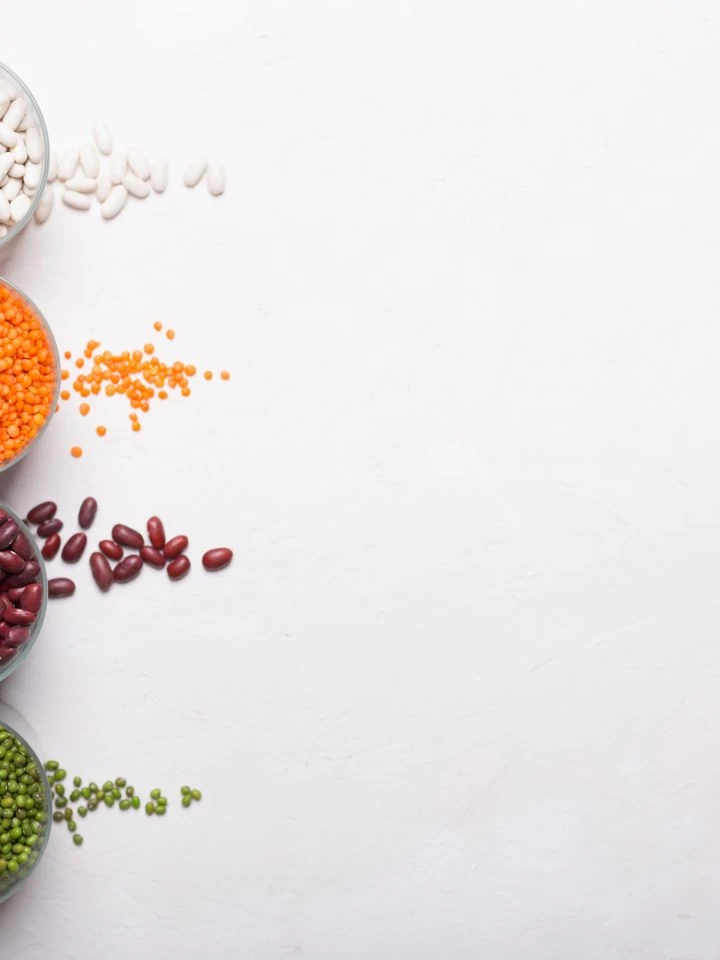Amidst the rush of modern life with deadlines and responsibilities, we often overlook the very core of our vitality: the cardiovascular system. One of the leading causes of death in the world today is cardiovascular disease; it affects over seventeen million people every year. As with many health issues, many factors can lead to the development of cardiovascular diseases, including lifestyle and genetics.
Although some factors that cause cardiovascular diseases are beyond our control, consuming heart-friendly foods can positively impact cardiovascular health. With the convenience that often wins over proper nutrition, it is often easy to pay less attention to the impact that food choices have on cardiovascular health. This is why we have compiled some of the best cardio-friendly foods for you.
Why is the health of the cardiovascular system important?
If there is one organ in the body that provides rhythm to your hustle, it is the heart. The heart is within the cardiovascular system with other networks of vessels and organs responsible for distributing hormones, nutrients, blood, and oxygen throughout the body. This system, which includes the heart and blood vessels, plays a vital role in preserving the body's overall functionality.
Prioritizing the health of the cardiovascular system is important because it is a major key to overall well-being. This is especially important as we grow older because, over time, the blood vessels and heart change as we age. This includes a high risk of atherosclerosis, which is the hardening of the blood vessels. Without proper care, this issue can escalate into other health issues like hypertension and high blood pressure. Some other factors can also affect cardiovascular health, including smoking, lack of physical activity, and poor diet.
Nutrition for cardiovascular health
When it comes to the health of the cardiovascular system, along with lifestyle changes, it is important to maintain a beneficial diet. The general aim of a cardio-friendly diet is to reduce the risk factors of heart diseases such as high blood pressure, high cholesterol levels, diabetes, obesity, and stress. In general, the best cardio-friendly foods are plant-based and whole such as vibrant fruits, vegetables, and whole grains. These foods are packed with antioxidants, fiber, and vitamins that are beneficial for the proper functioning of the cardiovascular system. Let us examine some of these foods.
Ten cardio-friendly foods you should try
1. Oatmeal
Oatmeal, a common breakfast meal for many, has always been appreciated for its many health advantages. Oatmeal is packed with vitamins, minerals, fiber, and antioxidants that support heart health in diverse ways. The soluble fiber present in oatmeal is known for the lowering effects that it has on cholesterol. Soluble fiber helps to reduce the levels of bad cholesterol (LDL). By doing this, it helps to reduce the risk of the arteries narrowing or becoming hardened.
Oatmeal also offers beneficial effects on blood pressure. Studies have asserted that regular consumption of oatmeal can contribute to a reduction in diastolic and systolic blood pressure, thereby reducing the risk of hypertension. Since oatmeal is a complex carbohydrate, the body digests it slowly. This helps to prevent sudden spikes in blood sugar levels and can reduce the risk of type 2 diabetes and insulin resistance. Oatmeal also contains nutrients such as thiamine, niacin, riboflavin, calcium, potassium, and magnesium, all of which are important for maintaining heart rhythm and blood pressure.
2. Dark chocolate
Dark chocolate can be beneficial for the cardiovascular system when consumed in moderation. It contains a rich concentration of antioxidants and flavonoids, which can help decrease inflammation and oxidative stress, protecting the blood vessels from damage and reducing the risk of cardiovascular disease. The flavonoids in dark chocolate can also support vasodilation thereby protecting the arteries from blockage.
Dark chocolate also contains compounds that might have anticoagulant qualities, which help to prevent excessive blood clotting and decrease the risk of stroke and thrombosis. However, despite the benefits that dark chocolate can provide for the cardiovascular system, it is important to consume it in moderation. In addition, it is recommended to choose the kinds that contain a higher content of cocoa and are low in sugar.
3. Potatoes
Most people disregard potatoes and tag them as bad starch because of their carbohydrate content, but potatoes can be a great addition to a cardio-friendly diet when consumed correctly. They are beneficial for heart health as long as you do not deep-fry or process them. Unprocessed potatoes can be beneficial to cardiovascular health in diverse ways. For one, they are rich in potassium, which is vital for regulating blood pressure.
Potatoes contain dietary fiber, especially when consumed with the skin. Fiber is beneficial for heart health as it helps decrease bad cholesterol levels and support weight management. Additionally, potatoes contain significant amounts of vitamin C, which is a beneficial antioxidant for protecting the cardiovascular system from inflammation and oxidative stress.
4. Tomatoes
Tomatoes are also one of the cardio-friendly foods that can help transform your health. This is because they are loaded with antioxidants, especially vitamins C and E, beta-carotene, as well as many phytonutrients that include polyphenols, flavonoids, and lycopene. These nutrients can help eliminate inflammation and oxidative stress in the body, which are key contributors to the development of cardiovascular diseases.
The lycopene content in tomatoes can also help prevent the formation of blood clots and protect the arteries from inflammation. It can also help with the management of cholesterol levels. Tomatoes also contain potassium, which can aid the regulation of blood pressure by decreasing the constriction of blood vessels and improving vasodilation, and can help prevent health issues like stroke and heart disease.
5. Spinach
As a cardio-friendly leafy green vegetable, spinach is rich in beta-carotene, flavonoids, and vitamins C and E, which can help reduce inflammation and oxidative stress in blood vessels. This can aid in the prevention of heart disease. Spinach also contains potassium, which can help counteract the effects of sodium in the body, thereby supporting proper fluid balance and preventing hypertension. Including spinach in your diet can help decrease the risk of cardiovascular disease.
Spinach is also high in vitamin K, which is vital for the clotting of blood and can help prevent the development of blocked arteries and cardiovascular complications. In addition, spinach is high in fiber but low in calories, which makes it an excellent addition to a cardio-friendly diet and can help in weight management.
6. Flax seeds
These tiny treasures of nature are beneficial for the cardiovascular system. Flax seeds are one of the richest plant-based sources of omega-3 fatty acids. Omega-3 fatty acids are renowned for their heart-healthy qualities including decreasing inflammation, reducing blood pressure, and lowering the risk of cardiovascular disease. Moreover, flax seeds are rich in insoluble and soluble fiber that can help decrease the levels of bad cholesterol.
Flax seeds may also support blood sugar regulation, which is important for managing and preventing diabetes, a health issue that is closely related to heart disease. Flax seeds also contain bioactive compounds such as lignans, phenolic compounds, fiber, and protein that can help improve blood flow and reduce the stiffness of the arteries.
7. Pomegranate
With their tangy-sweet flavor and jewel-like seeds, pomegranates are a delicious addition to your cardio-friendly diet. Pomegranates are loaded with several antioxidants such as anthocyanins and punicalagin, which possess amazing advantages for the cardiovascular system. These antioxidants can help fight oxidative stress and protect the lining of the blood vessels. This can contribute to a decreased risk of coronary heart disease and atherosclerosis.
In addition, pomegranates contain essential minerals and vitamins that can support immune system function and promote the functions of the blood vessels. Studies have shown that drinking pomegranate juice may help with lowering blood pressure. Pomegranates are also beneficial for cholesterol management and reducing the risk of hypertension and endothelial dysfunction.
8. Garlic and onions
Garlic and onions are known for their flavor-enhancing qualities in cooking, but they also offer health benefits to the heart. Both garlic and onion contain beneficial compounds such as quercetin and allicin, which can help reduce blood pressure, decrease inflammation, support blood vessel function, and reduce oxidative stress.
The sulfur compounds found in onion and garlic have been found to possess antithrombotic properties, meaning that they can aid the prevention of abnormal blood clot formation, a factor that can contribute to strokes and heart attacks. They can help reduce the risk of thrombosis and support blood circulation.
9. Beets
Beetroots are popular for their vibrant color and earthy flavor, and they are a nutritional powerhouse. They are rich in nitrates, which are converted into nitric oxide in the body. Nitric oxide aids the dilation and relaxation of body vessels, promoting better blood flow and a decrease in blood pressure.
Moreover, the nitrates in beetroot juice can be particularly beneficial in enhancing exercise performance. This is because nitrates can enhance oxygen utilization and blood flow to the muscles thereby resulting in increased endurance, stamina, and overall performance. By enhancing exercise capacity, beetroot can support overall cardiovascular fitness. Additionally, beetroots possess antioxidant and anti-inflammatory qualities that are beneficial for overall well-being.
10. Chili pepper
Appreciated for their vibrant colors and fiery taste, chili peppers also boast numerous benefits for cardiovascular health. Chili peppers contain capsaicin which is a compound linked to beneficial cardiovascular effects. Capsaicin aids the dilation of blood vessels, thereby promoting better blood circulation, decreased blood pressure, and reduced risks of strokes and hypertension.
Moreover, chili peppers can help reduce inflammation due to their antioxidant qualities. Chili peppers also contain vital nutrients like potassium, and vitamins A and C that can aid the strengthening of the blood vessels, reduce oxidative stress, and maintain the balance of electrolytes. By supporting metabolism and promoting fat burning, they can help reduce the risk of developing obesity-related heart issues like high cholesterol and diabetes.
Conclusion
The cardiovascular system is one of the most important systems in the body. Although it provides support to major body functions, its maintenance is sometimes overlooked. To ensure the proper functioning of the cardiovascular system and keep at bay diverse health issues like stroke, hypertension, and diabetes, it is important to prioritize a cardio-friendly diet. Incorporate foods like tomatoes, potatoes, chili peppers, beets, oatmeal, garlic, and onions into your diet. Embrace plant power today by transforming your health with these cardio-friendly foods.

A writer passionate about wellness, nutrition, and intentional living. She creates engaging, research-based content that empowers readers to live healthier lives. Through every article, she brings clarity, inspiration, and a touch of everyday practicality. Read more about Juliana.







Comments
No Comments